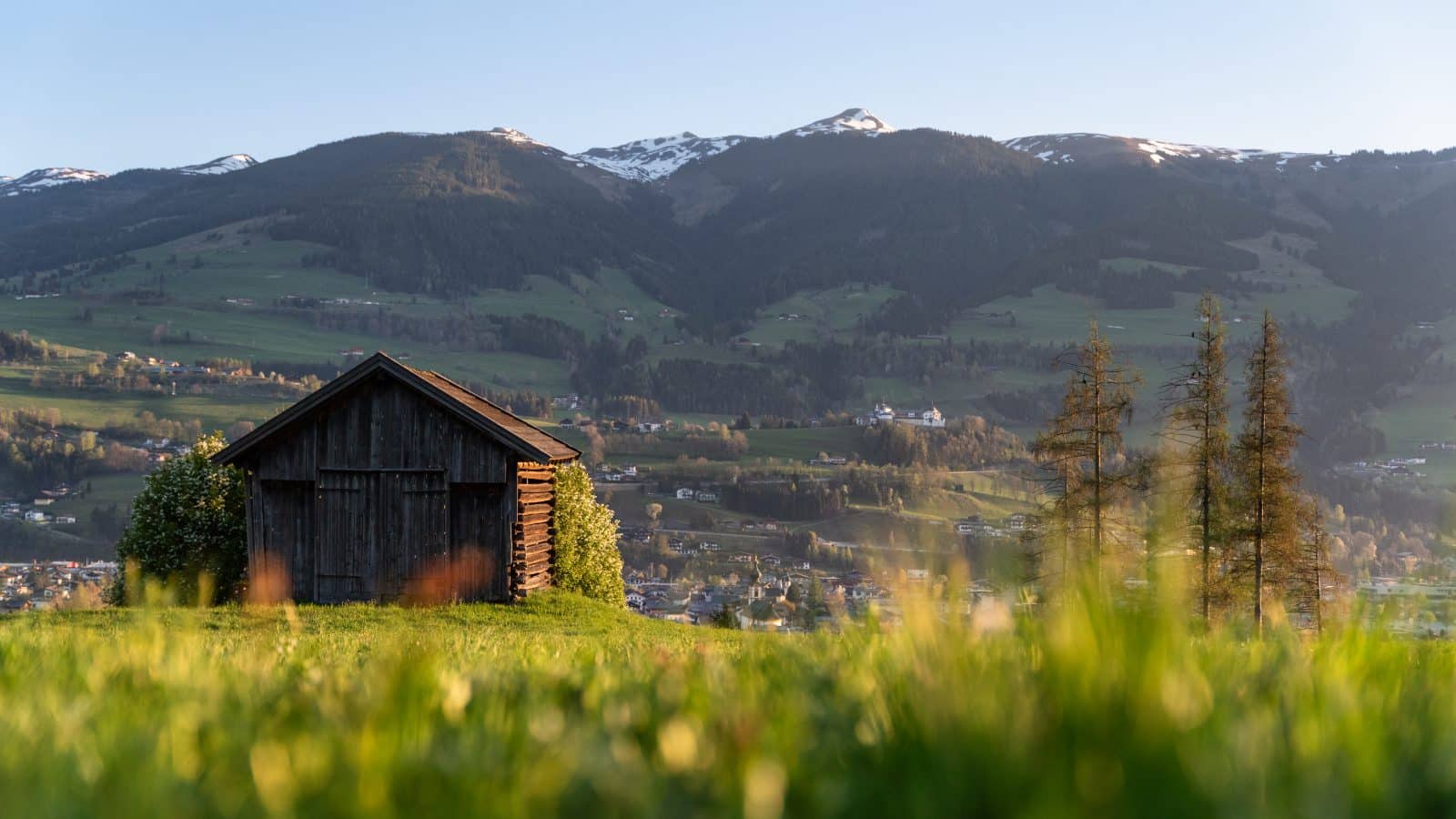A harmonious walk through idyllic natural scenery
Music history on the Anton Webern Trail in Mittersill
Surrounded by majestic Alpine peaks, Mittersill is not only home to the natural treasures of the surrounding region, but also an important part of music history: the Anton Webern Trail. Anton Webern, an influential composer of the Second Viennese School, left his mark on the 20th century with his avantgarde sounds and put down deep roots in Mittersill.
Walking in Mittersill surrounded by culture
The Anton Webern Trail takes visitors on a fascinating journey through idyllic scenery to experience the natural beauty of the Alps and discover the inspiration he found in his homeland. Along the way, visitors are accompanied by the natural harmonies of the surroundings, musical sound installations, and informative panels that provide an insight into the rich and varied life and work of Anton Webern—from the beginnings of his musical journey to the groundbreaking ideas that shaped his compositions.
Final resting place in the Kitzbühel Alps
The profound history of Anton Webern and his family in Mittersill stretches from the horrors of the Second World War to his tragic death in 1945. Webern found his final resting place in Mittersill after the war. However, his importance to the world of music took time to be recognized. Webern’s presence in Mittersill was not commemorated until 1965, when the first memorial plaque was erected at the place of his death.
Remembrance of Anton Webern in Mittersill
The commemoration of Webern received further impetus through initiatives by the municipality and private supporters. In 1972 the market town of Mittersill made his grave an honorary grave, and in 1981 the street of his tragic death was named Anton Webern Gasse. The concert on the 50th anniversary of his death in Sankt Anna Kirche church, where Webern’s body was laid out, was a groundbreaking event. This concert inspired the idea of keeping Anton Webern’s memory alive in Mittersill.
The Komponnist_innenform Mittersill (“Mittersill Composers’ Forum”) was founded to preserve Webern’s legacy, and has organized annual concerts around the anniversary of his death since 1996. Numerous memorials have been created in the town, including the memorial stone commemorating the meeting of Cesar Bresgen and Anton Webern (1998), the Original Webern-Ziga (2000), and the Anton Webern Stube (2005).

How the Anton Webern Weg came about
With the increasing number of memorial sites, the idea arose to link them in a themed trail. The trail not only illustrates the deep musical roots that Mittersill shares with Anton Webern but also his love of nature, echoed in his compositions.
The trail tells of Anton Webern’s musical journey and his personal history. Places that have received less attention to date, such as his home, have also been included to provide a comprehensive insight into his life. The combination of memorials, texts, and the impressive mountain scenery of the Hohe Tauern National Park creates a unique atmosphere. Every step on this trail is not only a walk through nature, but also through the sonorous history of a great composer who left an unforgettable mark on Mittersill.
Mittersill bears the musical history of Anton Webern and the love of nature that echoes in his compositions. The Anton Webern Trail is not only a path through the picturesque surroundings, but also a living memorial to a composer who left a lasting impression on Mittersill. You can find a complete description of the route at www.mittersill.info.
Experience nature and culture as a castle guest
The Anton Webern Trail is one of many active and cultural experiences around Hotel Schloss Mittersill. Countless walking and hiking trails lead through this magical region in the heart of the Hohe Tauern National Park and the Kitzbühel Alps. Numerous cultural destinations and events will enrich your stay at any time of year. We are happy to show you the way to the most beautiful experiences, accompanied by the unique ambience of our castle hotel. We look forward to welcoming you!
Copyright:
Michael Huber, Daniel Kogler



